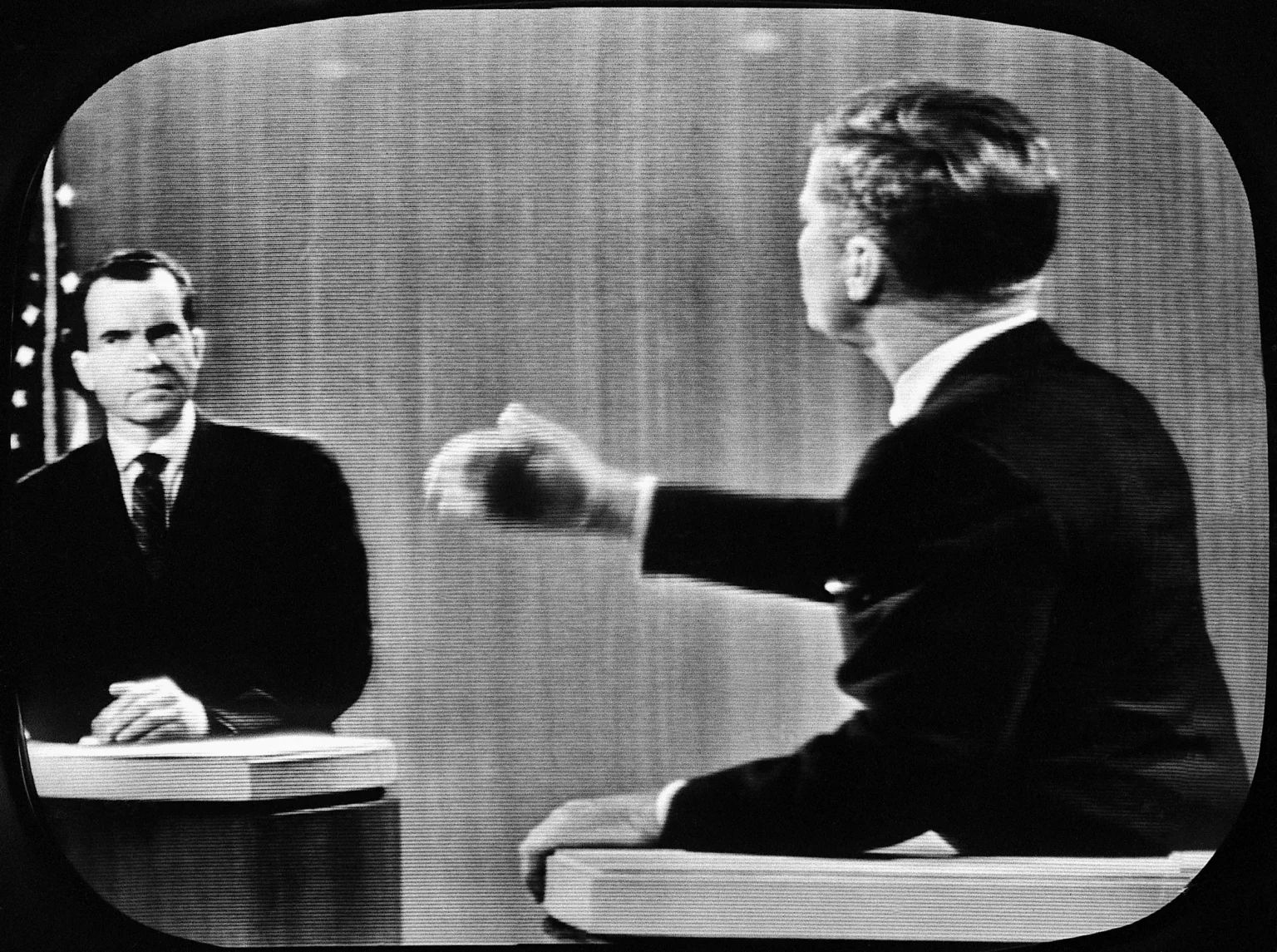On September 26, 1960, American political and broadcast history was made as Vice President Richard Nixon and Senator John F. Kennedy participated in the first-ever televised presidential debate. This event was watched by 70 million Americans and changed how presidential campaigns were conducted by bringing elections into people’s living rooms. The candidates faced off on television three more times before the November 8, 1960 election, which ultimately resulted in Kennedy winning the presidency.
Nixon, a popular politician who had previously served as Dwight Eisenhower’s vice president, faced Kennedy, a World War II hero and charismatic figure from the political dynasty. Despite Nixon’s successes in previous elections, Kennedy proved to be his most formidable opponent, narrowly winning the 1960 presidential election. The televised debates may have played a crucial role in Kennedy’s victory, as his appearance and demeanor on TV appealed more to viewers and voters compared to Nixon’s.
The debate on September 26, 1960, highlighted the importance of appearances and presentation in politics, as Nixon’s physical condition and demeanor during the broadcast may have negatively impacted his image with viewers. Kennedy, on the other hand, appeared vibrant and healthy, which may have influenced viewers’ perceptions of the candidates. This aspect of the debate, along with the candidates’ similar agendas and skillful presentations, contributed to Kennedy’s win in the election.
After the 1960 debates, there were no televised presidential candidate debates in 1964, 1968, or 1972. President Lyndon B. Johnson and Nixon both declined to participate in debates during their respective elections. The debates did not resume until 1976, when President Gerald Ford agreed to debate Georgia Gov. Jimmy Carter. The significance of televised debates in presidential campaigns became evident after the 1960 election, and they have since become a standard part of the election process.
The impact of the first televised presidential debate in 1960 extended beyond the election itself, influencing the way future campaigns were conducted and emphasizing the role of television in politics. The debate between Nixon and Kennedy showcased the power of television in reaching a broad audience and shaping public perceptions of political candidates. The visual aspect of the debates, combined with the candidates’ presentations and performances, played a significant role in shaping voters’ opinions and ultimately, the outcome of the election.
Overall, the historic televised debate between Nixon and Kennedy on September 26, 1960, marked a turning point in American political history. The event demonstrated the growing influence of television in shaping public opinion and highlighted the importance of presentation and appearance in political campaigns. Kennedy’s victory in the election underscored the impact of televised debates on voter perceptions and the role of media in influencing political outcomes.


